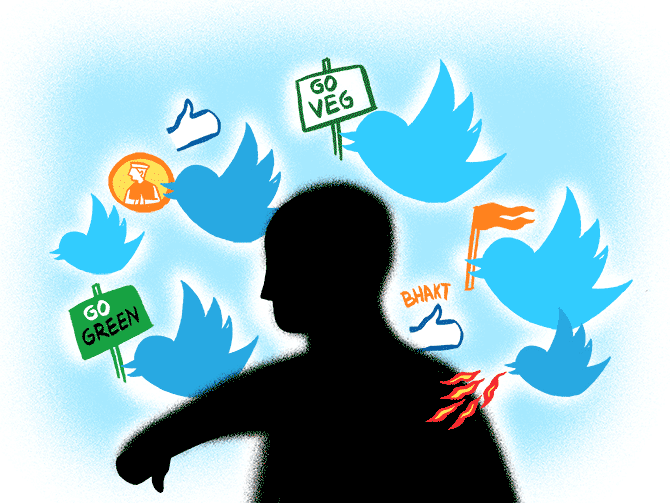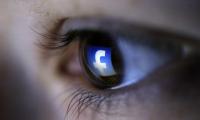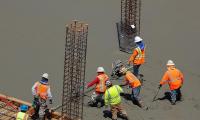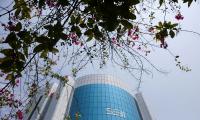India Tightens Deepfake Rules: Social Media Platforms Under Scrutiny
Indian government issues advisories to social media platforms demanding 100% compliance in curbing deepfakes and misinformation, threatening stricter rules.

New Delhi, Dec 5 (PTI) Union Minister Rajeev Chandrasekhar on Tuesday met social media platforms to review progress made by them in tackling misinformation and deepfakes, and asserted that advisories will be issued in the next two days to ensure 100 per cent compliance by platforms.
New, amended IT Rules to further ensure compliance of platforms, and the safety and trust of online users are actively under consideration, Chandrasekhar said in a post on X (formerly Twitter).
"Held the 2nd #DigitalIndiaDialogues on Misinformation and #Deepfakes with intermediaries today, to review the progress made since the Nov 24 meeting. Many platforms are responding to the decisions taken last month and advisories on ensuring 100 per cent compliance will be issued in the next 2 days," Chandrasekhar, who is Minister of State for IT and Electronics, said in the post.
Meanwhile, sources said that the government has talked tough with the digital platforms at Tuesday's meeting.
Platforms have been reminded that 11 areas of "user harms" or "illegalities" flagged under IT Rules are also mapped to equivalent provisions in the IPC (Indian Penal Code) and hence criminal consequences can follow even under the current laws.
The government has said that the terms of service/ community guidelines put out by platforms should clearly mention that a violation under 3(1)(b) of IT Rules also amount to a violation of relevant provision under other laws like IPC.
The platforms had been asked to align the terms of service/ community guidelines to the provisions of the IT Rules, in particular the 11 prohibited areas mentioned, and map with other laws (such as IPC). The terms of use/ community guidelines need to be easily visible to the users, and periodic reminders/ disclosures have to be sent to the users regarding the 11 prohibited areas.
Platforms have to ensure easily accessible mechanisms for reporting of violations, and all reported violations (including in-app complaints) will have to be treated as a grievance with the grievance officer. Moreover, the Rule 7/ Section 79 adjudication role will be played by the Grievance Appellate Committee or GAC, sources said.
On November 24, Chandrasekhar met with the representatives of social media platforms and the companies were given seven days to act decisively on deepfakes, and align their terms of use as per the IT Rules.
Sources said that some platforms have complied, and those "slow" in doing so have been given additional time. The government, in Tuesday's meeting, has made it amply clear that it will continue with its "zero tolerance approach" on user harm arising from misinformation and deepfakes.
According to sources, many platforms have shown a clear understanding of what the right thing to do is, and are adapting quickly, but some platforms have shown "lethargy".
In many instances, it was found that the community guidelines and the list of prohibited content were not easily accessible to the user.
"Some platforms have not comprehensively aligned their terms of service or partially aligned in areas such as: Deceives or misleads about origin/patently false and untrue or misleading in nature; impersonation; harmful for a child; pedophilic; invasive of privacy; insulting/harassing based on gender/ race/ ethnicity; threatens India's unity/ defense/ security/ friendly relations/ public order; Incites crime; money laundering/gambling etc," sources said.
A final meeting with platforms to take stock of the issues will take place in seven days, the source said.
At present, the IT Rules require platforms to tackle harm, and also make sure that users on the platforms are well aware of what is illegal and what is not.
The onus of ensuing this rests squarely on the platforms, and is covered under sections relating to due diligence by intermediaries (Section 3 of IT rules).
During Tuesday's meeting, platforms were clearly told that there are criminal consequences to such user harms, mapped even under existing laws.
Citing a case in point, sources said a section under CRPC allows prosecution for deepfakes under "forgery". Similarly, other forms of harm have equivalent provisions under the IPC.
"No platform used to doing nothing about harm would like to be told that we are going to take a 'zero tolerance approach' to harm... Ones that are slower (to act), we have given them some more time but we have certainly not given them any feeling that we are going to relax the government's approach in making the internet safe and trusted for all Indians," the source said.
The government will review in seven days whether advisories will suffice or if new or amended rules will need to be issued.
"Whether we need to issue only advisories or issue new amended rules, is something we will review in seven days from today. And if necessary, we will follow it up with a much tighter set of rules that focus on enforcement and issue of creating deterrence for those who abuse the platforms," sources said.
Deepfakes refer to synthetic or doctored media that is digitally manipulated and altered to convincingly misrepresent or impersonate someone, using a form of artificial intelligence.
Recently, several 'deepfake' videos targeting leading actors went viral, sparking public outrage and raising concerns over the misuse of technology and tools for creating doctored content and fake narratives.
New, amended IT Rules to further ensure compliance of platforms, and the safety and trust of online users are actively under consideration, Chandrasekhar said in a post on X (formerly Twitter).
"Held the 2nd #DigitalIndiaDialogues on Misinformation and #Deepfakes with intermediaries today, to review the progress made since the Nov 24 meeting. Many platforms are responding to the decisions taken last month and advisories on ensuring 100 per cent compliance will be issued in the next 2 days," Chandrasekhar, who is Minister of State for IT and Electronics, said in the post.
Meanwhile, sources said that the government has talked tough with the digital platforms at Tuesday's meeting.
Platforms have been reminded that 11 areas of "user harms" or "illegalities" flagged under IT Rules are also mapped to equivalent provisions in the IPC (Indian Penal Code) and hence criminal consequences can follow even under the current laws.
The government has said that the terms of service/ community guidelines put out by platforms should clearly mention that a violation under 3(1)(b) of IT Rules also amount to a violation of relevant provision under other laws like IPC.
The platforms had been asked to align the terms of service/ community guidelines to the provisions of the IT Rules, in particular the 11 prohibited areas mentioned, and map with other laws (such as IPC). The terms of use/ community guidelines need to be easily visible to the users, and periodic reminders/ disclosures have to be sent to the users regarding the 11 prohibited areas.
Platforms have to ensure easily accessible mechanisms for reporting of violations, and all reported violations (including in-app complaints) will have to be treated as a grievance with the grievance officer. Moreover, the Rule 7/ Section 79 adjudication role will be played by the Grievance Appellate Committee or GAC, sources said.
On November 24, Chandrasekhar met with the representatives of social media platforms and the companies were given seven days to act decisively on deepfakes, and align their terms of use as per the IT Rules.
Sources said that some platforms have complied, and those "slow" in doing so have been given additional time. The government, in Tuesday's meeting, has made it amply clear that it will continue with its "zero tolerance approach" on user harm arising from misinformation and deepfakes.
According to sources, many platforms have shown a clear understanding of what the right thing to do is, and are adapting quickly, but some platforms have shown "lethargy".
In many instances, it was found that the community guidelines and the list of prohibited content were not easily accessible to the user.
"Some platforms have not comprehensively aligned their terms of service or partially aligned in areas such as: Deceives or misleads about origin/patently false and untrue or misleading in nature; impersonation; harmful for a child; pedophilic; invasive of privacy; insulting/harassing based on gender/ race/ ethnicity; threatens India's unity/ defense/ security/ friendly relations/ public order; Incites crime; money laundering/gambling etc," sources said.
A final meeting with platforms to take stock of the issues will take place in seven days, the source said.
At present, the IT Rules require platforms to tackle harm, and also make sure that users on the platforms are well aware of what is illegal and what is not.
The onus of ensuing this rests squarely on the platforms, and is covered under sections relating to due diligence by intermediaries (Section 3 of IT rules).
During Tuesday's meeting, platforms were clearly told that there are criminal consequences to such user harms, mapped even under existing laws.
Citing a case in point, sources said a section under CRPC allows prosecution for deepfakes under "forgery". Similarly, other forms of harm have equivalent provisions under the IPC.
"No platform used to doing nothing about harm would like to be told that we are going to take a 'zero tolerance approach' to harm... Ones that are slower (to act), we have given them some more time but we have certainly not given them any feeling that we are going to relax the government's approach in making the internet safe and trusted for all Indians," the source said.
The government will review in seven days whether advisories will suffice or if new or amended rules will need to be issued.
"Whether we need to issue only advisories or issue new amended rules, is something we will review in seven days from today. And if necessary, we will follow it up with a much tighter set of rules that focus on enforcement and issue of creating deterrence for those who abuse the platforms," sources said.
Deepfakes refer to synthetic or doctored media that is digitally manipulated and altered to convincingly misrepresent or impersonate someone, using a form of artificial intelligence.
Recently, several 'deepfake' videos targeting leading actors went viral, sparking public outrage and raising concerns over the misuse of technology and tools for creating doctored content and fake narratives.
You May Like To Read
TODAY'S MOST TRADED COMPANIES
- Company Name
- Price
- Volume
- Vodafone-Idea-L
- 11.65 (+ 3.56)
- 106772451
- Alstone-Textiles
- 0.28 ( -3.45)
- 44187760
- Mangalam-Industrial
- 0.88 ( -2.22)
- 39177573
- Sunshine-Capital
- 0.27 (+ 3.85)
- 35956340
- GMR-Airports
- 104.40 (+ 6.37)
- 30453005





